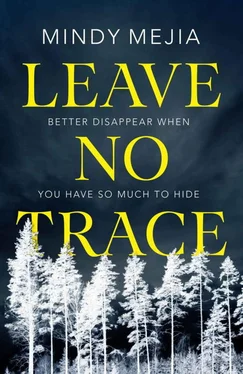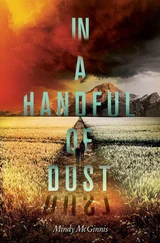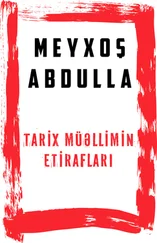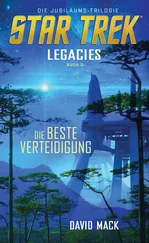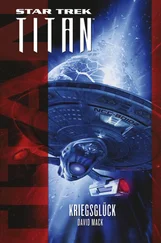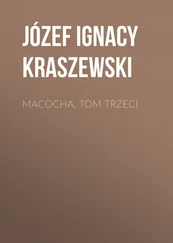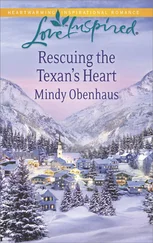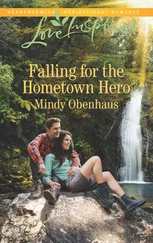Sometimes I even wondered if I’d studied speech so I could dissect my memories of her. I played old videos of us over and over but could never find any hint of her intentions. I hated the counselors who pulled me into their offices, the words that came so easily to them and had been impossible for her. The thing no one understands, when your parent abandons you, is that it doesn’t happen just once. They leave every day, every moment that you remember them is a door slamming shut in your face. And with every slam, you believe – a little more each time – that you probably deserved it.
My belief about Lucas Blackthorn was nothing like that creeping kind of blame. It didn’t gradually take root in my consciousness over years; I woke up this morning with a certainty flowing through me that not even Dr Mehta could derail. I hated myself for lying to her – sane Dr Mehta, sober Dr Mehta, a woman who had faith in the faithless and confidence in the worst people you could imagine. After all, she’d hired me. She’d challenged me, elevated me, believed in me, but now I wondered how much she really understood me. If she did, she never would have given me this assignment. Before I met Lucas, I don’t think I’d even understood myself.
This is what I knew now:
A father had disappeared. A son was desperate to find him.
And I would tell a thousand lies if it brought him one step closer.
The path before me seemed so clear and it gave meaning to everything I’d survived to get to this point. I had to help Lucas find his father. No matter what Josiah had done, no matter what had driven them into the Boundary Waters, they needed to find each other and I was possibly the only person in the world who understood how much. But the clock was ticking. Every day the winds blew harder and colder, the gales raged in a losing battle against the coming winter. Soon the ice would win, soon Josiah might be dead, and we’d be out of time.
I gathered up my session supplies and jogged up the stairs to ward two. I could feel the organs in my body pumping, expanding, the excitement set loose in every nerve ending, flashing with a life I hadn’t known was even inside me. Without any premonition of what lay ahead, I badged in to ward two and caught a flash of Lucas’s face before the world jerked sideways.
ACRUSHING WEIGHT knocked me to the ground, sending the air whooshing out of my lungs. Several people yelled my name, the loudest one right in my ear.
‘Tag, Maya! Tag, Maya!’ the voice shouted gleefully.
I twisted around and pulled his skull into a headlock as Lucas appeared above us, grabbing a massive arm and ripping it backward. Big George shrieked in pain.
‘Back off, Lucas! Now,’ I managed to order as two nurses came to pry our tag player off me. After we got untangled and de-escalated the situation, the other staff and I led Big George to his favorite squishy chair and sat him down. He held his arm and rocked, refusing to make eye contact with anyone. I nodded to the nurses and they gave us a little distance, returning to the bustle of the adult men’s common room. Most of the other patients watched us to see how the show would turn out, but when nothing more exciting happened than Big George sniffling into the crook of his arm they gradually resumed their card games, books, and TV programs. Faces turned away from the window of the classroom, where one of the life skills coaches held up a rainbow-colored chart. Lucas paced behind the row of sofas in front of the TV, and even though he didn’t look over once I knew I had his undivided attention.
Big George was holding his throat now and he’d gotten himself into a loop, repeating ‘Ow’ over and over.
‘What hurts, George? Tell me.’
Instead of verbalizing, he pointed to his arm and neck and then, as he always did when something ached, he doubled over and pressed his palms against his head.
Big George had lived at Congdon for twenty years, ever since he and two friends robbed a grocery store at gunpoint in Cloquet, loaded up trash bags with cash and food, and met a squad car on their way out. The other two began shooting at the police and were killed on sight but George was ‘lucky’; he’d been hunched over a box of Triscuits when they opened fire and the angle of the bullet through his brain missed every major artery. He had the aptitude of a four-year-old now, ate every meal as if his life depended on it, and was aggressively cheery unless he felt the slightest twinge of pain – reminding him a phantom bullet lived in his head – or if he saw anything resembling a tan, plaid square, which would send him spiraling into a meltdown. Triscuits were strictly banned in the men’s ward.
I gave him a second to work through his feelings and then doubled over my own legs, mirroring his pose. When I got his attention, I pointed to the ankle Bryce’s Taser had sprained.
‘I’ve got a place that hurts, too.’ As George reached out to tap my shin, I asked him. ‘Where am I hurt?’
‘Leg.’
‘This is my leg.’ I sounded as excited as anyone could about discovering a piece of their body and he caught on to my enthusiasm, pointing to his head.
‘This is my ow.’
Keeping my grin in place with a Herculean effort, I corrected him. ‘No, silly. That’s your head.’
He cackled and we kept going, the body part naming game an old favorite and a comfortable way for him to articulate complete sentences. I’d tucked a bunch of fabric samples in the surprise bag with another exercise in mind, but swatches could wait. We played while tears dried on the dark mounds of his cheeks, until I’d pushed him beyond all the body parts he knew and into the more phonetically uncomfortable territory of forearm and spine, where cognitive fatigue soon settled in. Sessions with George were always brief.
To end, I pulled him to his feet and we sang a version of ‘Dem Bones,’ hopping around the common room. ‘Toe bone connected to the foot bone, foot bone connected to the heel bone…’
George loved singing and was oblivious to the snickers and stares. We spun and danced while recapping all the body parts he might need to verbalize to his doctors in the event of illness or injury. After we finished, the easy grin melted into a more complicated emotion and his next words came out in a quiet, but perfectly clear cadence. ‘Sorry, sorry, sorry.’
‘What are you sorry for, George?’
‘Tag, Maya. I’m sorry.’
‘Thank you for finding those words.’ I touched his arm and grinned into his contrite face. ‘Next time you play tag, you’ve got to remember you’re a big, old bear. You can’t go around tagging little gnats like me.’
‘Bird.’ He petted my hair and cracked a smile. ‘Maya’s a bird.’
‘Bears have to be careful of birds, okay?’
‘Okay, Maya.’
I left Big George in the care of one of the nurses and wandered through the ward with his words repeating in my head. This is my ow.
When I was first promoted to speech therapist I’d focused on one thing – helping my patients speak. I spent all my sessions working on palate exercises, pronunciation, articulation, and sound. The goal was form. Whatever coherent subject matter they produced had ended up on their doctor’s plate, not mine, but now Lucas was changing everything. I couldn’t ignore the meaning behind their words, couldn’t keep describing the water in the boat without wanting to plug the holes. This is my ow. My heart ached for Big George, for the broke, hungry kid who would probably grow old inside these walls. He had no support network outside of Congdon, nowhere to go if he was ever released, and no hope of becoming self-sufficient. All I could do was point to my forearm, teach him words he would forget by our next session, and try to make him smile.
Читать дальше
